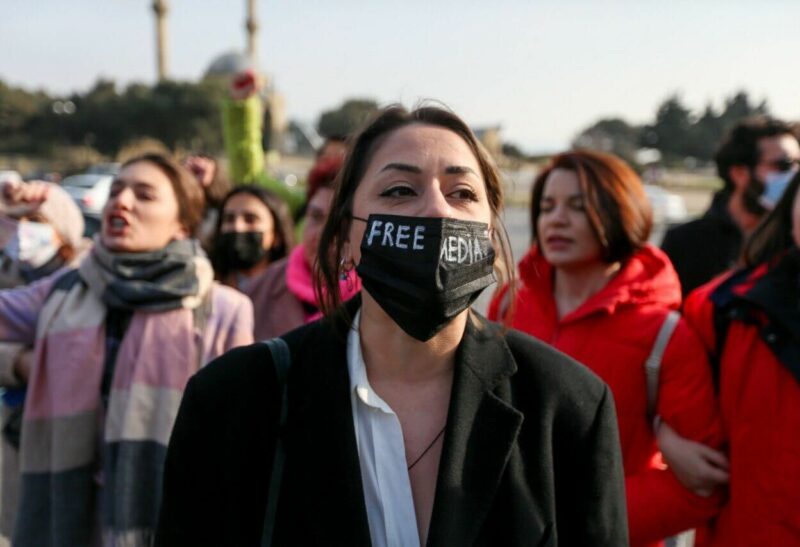This article has been translated from the Azerbaijani from
azadliq.info
***
What happened after the deaths of the leaders of Azerbaijan, Turkmenistan and North Korea?
Several days ago, it was reported by numerous media sources that Islam Karimov, the long – term leader of Uzbekistan, had suffered a stroke. Experts are already talking about who will be replacing him.
In 1993, Heydar Aliyev came to power in Azerbaijan, where he remained for a further 10 years. In 2003, even though he planned to put out his candidature for president, his health prevented this from happening. First he went to Turkey, and later to the United States for treatment, however, on December 12th, he passed away.
The creator of authoritarian regimes
Heydar Aliyev is often accused of creating an authoritarian state. According to Transparency International, Azerbaijan was ranked 119th in terms of corruption – that is, one of the most corrupt states in the entire world.
In 2002, Azerbaijan had its first constitutional referendum, according to which, in the case of the death of the president, the Prime Minister was supposed to take his place. In 2003, in August, Ilham Aliyev was made Prime Minister.
Two weeks before the next elections, Heydar Aliyev addressed the public, and gave his endorsement to his son to become the next president of Azerbaijan.
At that time, Human Rights Watch (HRW) wrote that the results of the elections had been rigged and falsified in Aliyev’s favor. Members of the opposition had been banned from participating, as had the people from gathering for demonstrations. According to HRW, hundreds of members of the opposition were detained or beaten during this period.
Since then, Ilham Aliyev has twice been elected the president of Azerbaijan.
The leader of the Turkmen Soviet Socialist Republic even during Soviet times, Saparmurad Niyazov, was elected president of Turkmenistan in 1990. According to official information, he received 98.3% of the vote. In 1992, an official constitution was ratified in Turkmenistan, and presidential elections of the same year voted in Niyazov again – this time with 99.5% of the vote.
In 1994, on the results of a referendum, the next elections were postponed until 2002. In 1999, he was voted president for life by the parliament of the country.
Niyazov’s only son did not participate in the country’s political life until 2006, when he, for the first and last time, represented Turkmenistan in talks with representatives of the United Arab Emirates.
After Saparmurad Niyazov’s death, it was highly probably the his son would become president. However, at the end of 2006, his son decided not to run for president.
Enter Berdymukhamedov
According to the country’s constitution, the authority of the presidency was to pass to the head of the parliament. However, immediately after Niyazov’s death, this same individual was accused of abusing his judicial authority and rendered ineligible.
Instead, Gurbanguly Berdymukhamedov, the country’s former Minister of Health, became the president; he also looked after the burial service of Niyazov.
Berdymukhamedov was twice elected the president; once in 2007 (89,23%), and once in 2012 (97,14%).
During Niyazov’s administration, Turkmenistan became one of the most repressive states in the world.
Berdymukhamedov introduced reforms to reduce the effect of his predecessor’s personality cult. According to HRW, Berdymukhamedov is in complete control of the country, and governs all social and political matters of the state under his own supervision.
A change in title
Kim Ir Sen changed the name of positions in his government. First, he was the chairman of Provisional People’s Committee for North Korean. Later, he became the Secretary General of the Central Committee of the Korean Labor Party. Finally, in 1972, he became the country’s Chairman of the Council of Ministers and the President.
Kim Ir Sen and his associates created a totalitarian regime and a cult of personality as soon as he came to power.
In 1980, at the party’s 6th Congress, Kim Ir Sen’s son, Kim Jong Il, was announced his successor. Before this, his son had held various leading positions in the country, such as the High Commander of the Korean People’s Army, a position which he was designated by his father in 1991.
In 1994, when Kim Ir Sen died, Kim Jong Il officially took power; a three year mourning period was announced. In 1998, his son was given the title of “North Korea’s Eternal President.”
A country without comparison
During his administration, Kim Jong Il was deified as the country’s leader.
Initially, it was announced that Kim Jong Il’s older son, Kim Jong Nam would ‘inherit the throne.’ However, in 2001, on a fake Japanese passport, he was caught trying to exit the country. According to some accounts, Kim Jong-nam wanted to go to Disneyland.
In 2009 (in some accounts, in 2007), Kim Jong Il’s second son, Kim Jong Un announced his candidacy as the leader of the party.
In 2011, after the death of his father, he indeed became the head of North Korea.
According to the UN Human Rights Commission, there is no country in the world comparable to North Korea for its human rights violations.



